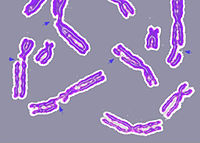
A Bioelectronic Platform Modulates pH in Biologically Relevant Conditions
Sign Up to like & getrecommendations! Published in 2019 at "Advanced Science"
DOI: 10.1002/advs.201800935
Abstract: Abstract Bioelectronic devices that modulate pH can affect critical biological processes including enzymatic activity, oxidative phosphorylation, and neuronal excitability. A major challenge in controlling pH is the high buffering capacity of many biological media. To… read more here.
Keywords: modulates biologically; bioelectronic platform; platform; platform modulates ... See more keywords

The hydration of selected biologically relevant molecules – the temperature effect on apparent molar volume and compression
Sign Up to like & getrecommendations! Published in 2019 at "Journal of Molecular Liquids"
DOI: 10.1016/j.molliq.2018.10.155
Abstract: Abstract The densities and sound velocities at T = (288.15, 293.15, 298.15, 303.15 and 308.15) K were measured for aqueous solutions of glycine, trimethylamine-N-oxide, taurine and N-methylacetamide. From these data, the apparent molar volumes, VΦ, the apparent… read more here.
Keywords: biologically relevant; selected biologically; hydration selected; hydration ... See more keywords

Engineered viral RNA decay intermediates to assess XRN1-mediated decay.
Sign Up to like & getrecommendations! Published in 2019 at "Methods"
DOI: 10.1016/j.ymeth.2018.11.019
Abstract: Both RNA synthesis and decay must be balanced within a cell to achieve proper gene expression. Additionally, modulation of RNA decay specifically offers the cell an opportunity to rapidly reshape the transcriptome in response to… read more here.
Keywords: mediated decay; rna; rna decay; biologically relevant ... See more keywords

Aggregation-Switching Strategy for Promoting Fluorescent Sensing of Biologically Relevant Species: A Simple Near-Infrared Cyanine Dye Highly Sensitive and Selective for ATP.
Sign Up to like & getrecommendations! Published in 2017 at "Analytical chemistry"
DOI: 10.1021/acs.analchem.7b01175
Abstract: We report a strategy for enhanced performance of fluorescent sensing of biologically relevant species that often bind with natural receptors via multiple interactions. We propose making a fluorescent sensory molecule to form H-aggregates such that… read more here.
Keywords: cyanine dye; atp; relevant species; fluorescent sensing ... See more keywords

Replication Protein A Utilizes Differential Engagement of Its DNA-Binding Domains to Bind Biologically Relevant ssDNAs in Diverse Binding Modes.
Sign Up to like & getrecommendations! Published in 2022 at "Biochemistry"
DOI: 10.1021/acs.biochem.2c00504
Abstract: Replication protein A (RPA) is a ubiquitous ssDNA-binding protein that functions in many DNA processing pathways to maintain genome integrity. Recent studies suggest that RPA forms a highly dynamic complex with ssDNA that can engage… read more here.
Keywords: dna; biologically relevant; rpa; binding modes ... See more keywords

Luminescent Cycloplatinated Complexes with Biologically Relevant Phosphine Ligands: Optical and Cytotoxic Properties.
Sign Up to like & getrecommendations! Published in 2019 at "Inorganic chemistry"
DOI: 10.1021/acs.inorgchem.8b03211
Abstract: Two series of neutral luminescent pentafluorophenyl cycloplatinated(II) complexes [Pt(C^N)(C6F5)L] [C^N = C-deprotonated 2-phenylpyridine (ppy; a), 2-(2,4-difluorophenylpyridine (dfppy; b)] incorporating dimethyl sulfoxide [L = DMSO for 1 (1a reported by us in ref (14) )] or… read more here.
Keywords: cytotoxic; phosphine; complexes biologically; luminescent cycloplatinated ... See more keywords

Structure and Dynamics of Type III Secretion Effector Protein ExoU As determined by SDSL-EPR Spectroscopy in Conjunction with De Novo Protein Folding
Sign Up to like & getrecommendations! Published in 2017 at "ACS Omega"
DOI: 10.1021/acsomega.7b00349
Abstract: ExoU is a 74 kDa cytotoxin that undergoes substantial conformational changes as part of its function, that is, it has multiple thermodynamically stable conformations that interchange depending on its environment. Such flexible proteins pose unique… read more here.
Keywords: protein; biology; spectroscopy; structure ... See more keywords

Self-Assembled Cage-like Receptor that Binds Biologically Relevant Dicarboxylic Acids via Proton Coupled Anion Recognition.
Sign Up to like & getrecommendations! Published in 2020 at "Journal of the American Chemical Society"
DOI: 10.1021/jacs.9b11566
Abstract: We report here a fully organic, self-assembled dimeric receptor, constructed from acyclic naphthyridylpolypyrrolic building block. The cage-like dimer is stable in the solid state, in solution, and in gas phase, as inferred from X-ray diffraction,… read more here.
Keywords: relevant dicarboxylic; cage like; self assembled; acid ... See more keywords

Biologically relevant laminin as chemically defined and fully human platform for human epidermal keratinocyte culture
Sign Up to like & getrecommendations! Published in 2018 at "Nature Communications"
DOI: 10.1038/s41467-018-06934-3
Abstract: The current expansion of autologous human keratinocytes to resurface severe wound defects still relies on murine feeder layer and calf serum in the cell culture system. Through our characterization efforts of the human skin basement… read more here.
Keywords: system; fully human; human epidermal; culture ... See more keywords

Annotation of biologically relevant ligands in UniProtKB using ChEBI
Sign Up to like & getrecommendations! Published in 2022 at "Bioinformatics"
DOI: 10.1093/bioinformatics/btac793
Abstract: Motivation To provide high quality, computationally tractable annotation of binding sites for biologically relevant (cognate) ligands in UniProtKB using the chemical ontology ChEBI (Chemical Entities of Biological Interest), to better support efforts to study and… read more here.
Keywords: uniprotkb using; biologically relevant; using chebi; ligands uniprotkb ... See more keywords

Plant long noncoding RNAs: biologically relevant and mechanistically intriguing.
Sign Up to like & getrecommendations! Published in 2022 at "Journal of experimental botany"
DOI: 10.1093/jxb/erac482
Abstract: Long noncoding RNAs (lncRNAs) form a group of RNAs greater than 200 nucleotides exhibiting low or no coding potential, which are involved in diverse biological functions through their molecular interaction with proteins, DNA or other… read more here.
Keywords: biologically relevant; long noncoding; noncoding rnas; rnas biologically ... See more keywords